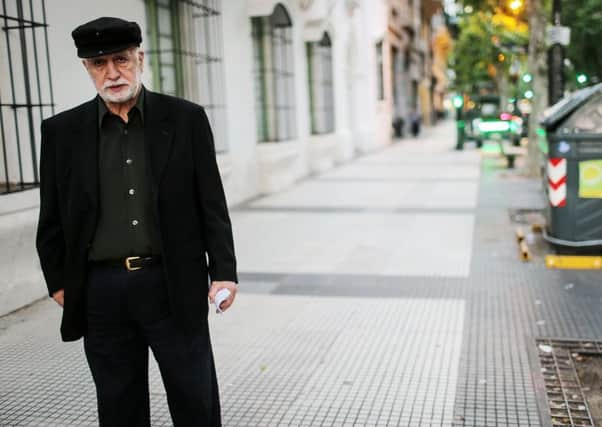Argentina set to choose Macri economics


On the eve of this weekend’s vote, an Ipsos Mori poll gave the opposition leader, Mauricio Macri, a near 10 per cent advantage over the ruling- party candidate, Daniel Scioli.
Macri, who is the leader of the Let’s Change coalition of opposition parties, is riding a wave of momentum in favour of change after 12 years of one-family rule in Argentina.
Advertisement
Hide AdAdvertisement
Hide AdIt began in 2003, when Nestor Kirchner swept to power in the wake of the biggest economic meltdown in Argentina’s history. It continued when his wife, Cristina Kirchner, succeeded him four years later. Together, the Kirchners became Argentina’s most powerful political couple since the 1940s and the days of Juan Domingo and Evita Perón.
Backed by a boom in the price of global commodities, the Kirchners returned Argentina to a path of prosperity. They introduced a new, nationalist model of government which prioritised Argentina’s political and economic sovereignty. They paid off Argentina’s debts to the International Monetary Fund and expanded the welfare state, winning the hearts and minds of millions.
But the boom is over. Argentina’s economy has stagnated and, according to private- sector analysts, inflation is raging at 35 to 40 per cent per year. Argentina’s money reserves are running dry and the Kirchner government is printing money on massive scale to fund a welfare state that subsidises everything from people’s gas bills to the price of bus commutes to work.
Kirchner will step down in December – she is constitutionally barred from running for re-election – and in the race to decide her successor, Argentinians have turned to her political foe in what has become a vote for change.
Macri, a pro-business candidate who was born into one of Argentina’s richest families, has pledged to fix his country’s deepening economic woes. The popular two-time mayor of Buenos Aires has also promised to win a burgeoning war on illegal drug cartels and to unite a society fatigued by 12 years of divisive Kirchner rule. “The moment is now”, he told supporters on closing his campaign on Friday.
It is a message that resonates. On election eve, on the main Florida shopping street in Buenos Aires, Nancy Racano, a company administrator, does her lunchtime shopping amidst leather shops and street beggars. She says inflation is decimating her monthly salary.
“As each week goes by, my salary buys me less. I’m at my limit. I have to leave out necessities,” says the 57-year-old, who nevertheless says her biggest concern is a recent spike in drug-related crime.
On the busy street, illegal money-exchangers operate in full view of police. Black-market demand for the American dollar has soared in Argentina on the back of racing inflation and strict controls on currency exchange that were imposed by the Kirchner government.
Advertisement
Hide AdAdvertisement
Hide AdMiddle-class Argentinians are turning to illegal money-lenders to buy dollars, which they view as a safe-haven currency. The value of the black-market dollar now exceeds the value of its official counterpart by up to 70 per cent.
Racano resorts to the illegal market in order to save money to buy medication she needs for her ageing parents. Like many in the capital city, she must walk unaccompanied along backstreets into unmarked exchange offices in order to get her greenbacks. Robberies are commonplace.
Macri has promised to end unpopular currency controls on the first day of his presidency. Significantly, the centre-right candidate has also promised to target “zero poverty” and to leave untouched many of the landmark reforms introduced by Kirchner, including universal child benefit.
Such pledges have helped Macri to soften a technocratic image and to convince Argentinians of a commitment to social justice. Macri has also promised not to return to the private sector the key strategic industries that were nationalised under the Kirchners.
According to political analyst, Sergio Berensztein, this is an acknowledgment of the desire of many Argentinians to maintain the role of the state in the post-Kirchner era.
“Most Argentinians”, said Berensztein “want better management of the economy and a strengthening of the democratic values lost in the Kirchner years, but they also want to see Argentina continue to develop along social-democratic lines.”
Daniel Scioli, the ruling-party candidate, wants to persuade voters otherwise. Cristina Kirchner’s anointed successor is a former world-champion powerboat racer who lost his right arm in a boating accident in 1989.
A moderate within the ruling party, Scioli has nevertheless failed to convince voters of his ability to implement change, if elected, or to govern independently of his party’s leader.